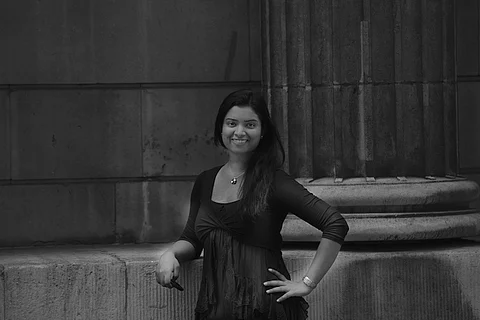

India’s Forbidden Love: An Honour Killing On Trial is a documentary by filmmaker Sadhana Subramaniam which released in March 2018. Shot for Al Jazeera's Witness, a documentary series channel, the film has now been nominated for the International Emmy Awards under the Best Documentary category.
TNM caught up with Sadhana, who was in Chennai for a couple of days, to discuss the documentary and her experiences in navigating the deep roots of caste in the state through the Shankar-Gowsalya case.
Born in Mysuru to Tamil parents, Sadhana moved to London when she was about 16 to pursue her education. After a banking stint that she rarely talks about, Sadhana took up a journalism course in 2016 in London and pitched the idea for this documentary as her grad project when she came across a news article.
With encouragement from her professor and award-winning documentary filmmaker Orlando von Einsiedel (Virunga), Sadhana says that the pitch was accepted by Al Jazeera. “The documentary was to follow the trial and end with the verdict. Little did I know that that was where my troubles would begin,” she says with a laugh.
Shankar, a Dalit man, was hacked to death in March 2016 for marrying Gowsalya who's from the dominant Thevar community. The CCTV footage of the murder that occurred at Udumalaipettai in broad daylight, shook the state. The case was closely followed by the people and media. In December 2017, more than 1.5 years after the crime took place, the Tirupur District Sessions Court, presided by Judge Alamelu Natarajan, sentenced six men including Gowsalya’s father, Chinnasamy to death, while acquitting three including her mother Annalakshmi.
“The verdict was supposed to come in April but the hearings kept getting adjourned. It was quite a testing period that I was not prepared for,” says Sadhana.
But that wasn’t her only challenge. A good part of the year that she spent working on the documentary, Sadhana shuttled between places to get all her interviews with her small team of two cinematographers - Deepak and Sraiyanti. “I was staying in Coimbatore with my team and we’d head to Coonoor, where Gowsalya was, to get her on camera, and every Monday and Wednesday, when the court convened, we’d drive down 300 miles to get her brother Gautham at Tirupur court. We also got her parents at the prison. Then we’d speak to the lawyers who’d be preparing for court. It was quite challenging that way,” she says.
Sadhana and Gowsalya
Sadhana's decision to interview the mother, brother and grandmother invited criticism. “Some told me that it paints the perpetrators in sympathetic light. But I don’t see how. I have not taken sides. I have not said that it’s right. I only want to find out why it happens. As filmmakers we don't have the luxury of being biased,” Sadhana says.
Gowsalya’s brother Gautham is an important part of the documentary. “She has been brought up without the awareness of caste,” he says at one point, disapproving of his sister's actions. However, Sadhana says that she was very careful in presenting what he had to say. “He was under 18 at the time and I received parental consent before filming him. But I’ve shown less than 1% of his filmed portions. 10 years down the line he may have different views and the interview should not spoil it for him,” she says.
Sadhana believes that her film is primarily for the perpetrators of caste violence, calling them "victims of caste" too since they're consumed by hatred.
As someone whose privilege shielded her from caste realities, working on this documentary helped Sadhana understand caste much better. “It was a huge learning curve. I was shielded and never experienced it first-hand. But when I began working, I was able to see it for myself. It is very suffocating. As someone living outside the country, the idea of romanticising home was no longer there for me. I knew what was going on back home,” she says.
Acknowledging that caste exists in urban spaces too, Sadhana says, "I feel casteism is more straightforward in the villages than in the cities. Here, you want to be politically correct but do you mean it? If urbanisation could end casteism, at the rate we’ve developed, we should have eradicated it by now. In villages you already have an identity. But in cities, when there’s an identity crisis, people tend to hold on to such toxic cultures more."
Sadhana had to field several threatening phone calls from the Hindu Munnani and other Right wingers, she claims. “They were also keen on knowing my caste, both sides,” she says. Now, Sadhana feels elated by the recognition that has come in. “I had just started out. It was my first documentary and to receive such a good response for it feels very encouraging. But my biggest award would be recognition from home,” she smiles.